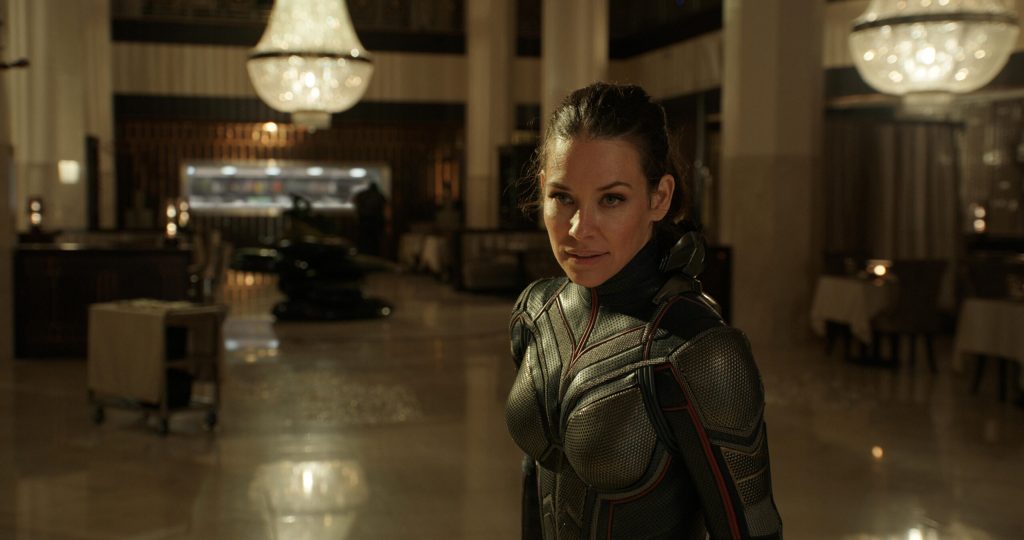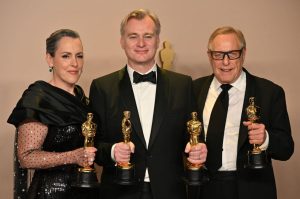Marvel is releasing its latest extravaganza, Ant-Man and the Wasp: Quantumania, this weekend. Although early reviews have been largely negative and suggest the film is overwrought, it will inevitably make a huge amount of money and begin Marvel’s so-called “Phase 5” in high-profile fashion.
Which is why it’s crucial for the publicity machine that its star Evangeline Lilly’s views on the anti-vaxxing debate do not overshadow the film’s more straightforward themes of good, evil and quantumania. Unfortunately, real-world issues are more complex than Marvel might like them to be.
Lilly has enjoyed a successful career in films such as The Hobbit and in shows including Lost, and her appearances in the Ant-Man pictures were, until the advent of Covid, entirely uncontroversial. Yet the spread of the illness became a major preoccupation for her. On March 16, 2020, she posted on Instagram that she refused to self-isolate and described her life as “business as usual.” Clearly under pressure, she subsequently retracted her statement, saying, “despite my intense trepidation over the socioeconomic and political repercussions of this course of action, PLEASE KNOW I AM DOING MY PART TO FLATTEN THE CURVE, PRACTICING SOCIAL DISTANCING AND STAYING HOME WITH MY FAMILY.” She added that “the world is rallying to find a way to stop this very real threat, and my ensuing silence has sent a dismissive, arrogant and cryptic message.”
If that had been the end of it, the matter would have been forgotten by now. But Lilly affirmed her anti-vaxxer credentials last year when she attended a march in Washington in support of “bodily sovereignty” and once again made her views clear on social media. She stated, “I believe nobody should ever be forced to inject their body with anything, against their will, under threat of violent attack, arrest or detention without trial, loss of employment, homelessness, starvation, loss of education, alienation from loved ones, excommunication from society… under any threat whatsoever.” She concluded, “I understand the world is in fear, but I don’t believe that answering fear with force will fix our problems. I was pro-choice before Covid and I am still pro-choice today.”
If Lilly was an isolated example, Marvel might be able to ignore the situation. But unfortunately they and other studios have similar skeptics in their ranks. Letitia Wright, star of the most recent Black Panther film, shared an anti-vaxxing video on Twitter in 2021, declaring that “if you don’t conform to popular opinions. but ask questions and think for yourself… you get cancelled.”
Not to be outdone, DC Studios have their own problem with Zachary Levi, star of Shazam, who has stated that he is in “hardcore agreement” with those who have suggested that the Pfizer Corporation is “a real danger to the world.”
It is foolish to expect actors — an entitled and out-of-touch subset of humanity — to come out with rational and nuanced opinions. DC Studios’ new head James Gunn acknowledged this when he said that “filmmakers that I work with are going to say things I agree with and I don’t agree with, that’s going to happen. I don’t have a list of things somebody should say because of what I think, and I can’t be changing my plans all the time because an actor says something I don’t agree with.” Nonetheless, Gunn swiftly qualified this by saying that if someone said or did something “morally reprehensible,” he would be obliged to act. Gunn himself was nearly canceled by Disney over old jokes he made about the Holocaust and pedophilia; these will not be made again in his new, corporate form.
Whether or not one has sympathy for Lilly’s, Wright’s and Levi’s views, there can be no doubt that Hollywood actors are increasingly, and publicly, veering off-message, to the consternation of the studios behind their expensive projects. Once, it was easy enough to fire disobedient thespians. But now, as the likes of Armie Hammer reappear to denounce cancel culture and the female lead of 2023’s biggest film to date shows no signs of rowing back her controversial opinions, it seems message discipline is a thing of the past. It’s a nightmare for producers, but the rest of us can sit back and enjoy the reputational chaos that it will inevitably bring.


















